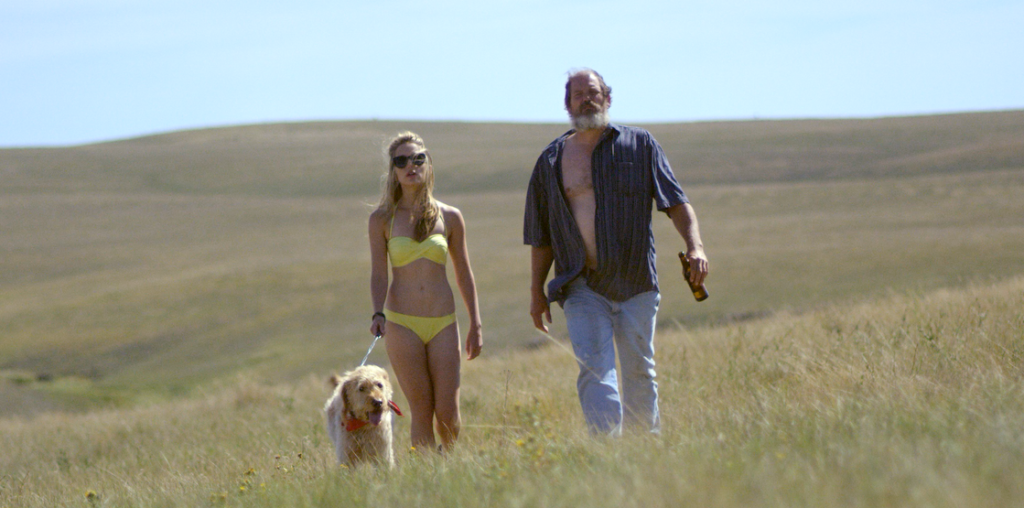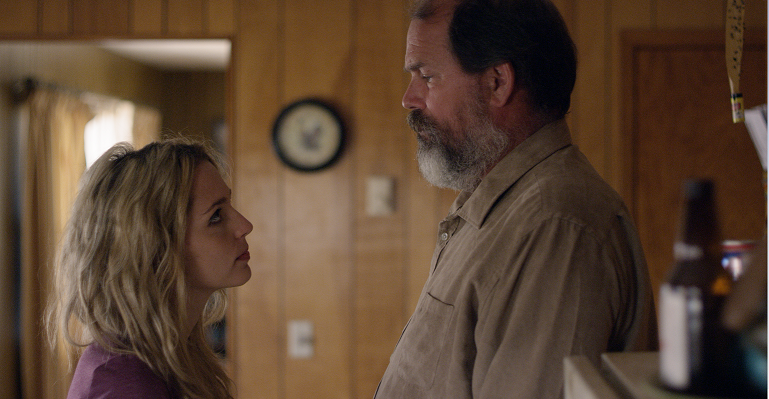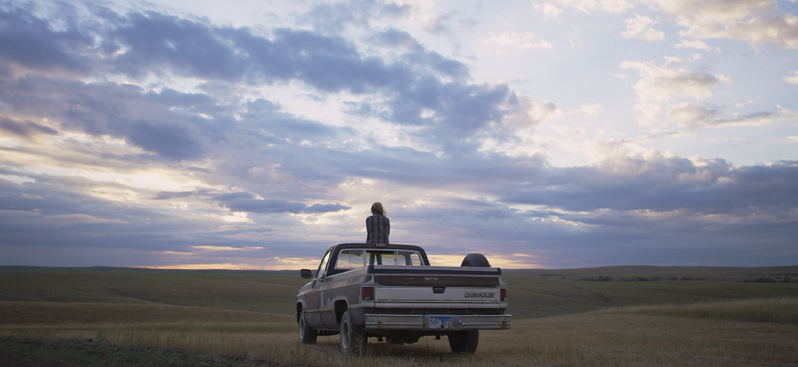Andrew Kightlinger’s Tater Tot & Patton won Best Feature Film at the Black Hills Film Festival last year, and justifiably so. In lesser hands, the story of a millenial rocking up to her uncle’s home in the middle of nowhere could be a recipe for an Adam Sandler comedy. Instead, this is a deeply affecting and fascinating insight into two opposing lives that largely avoids the pitfalls that its synopsis may imply.

Needing to get away from home for personal reasons, Andie (Jessica Rothe) goes to stay with her uncle Erwin (Bates Wilder), who drinks heavily and lives a solitary life tending his ranch. The contrast between the two is made obvious. Andie lives on her phone and requires the niceties of 21st century life. Erwin lives off bare necessities, and cuts himself off from most of the world. It’s hardly an original setup, and there are moments early on where crass dialogue betrays the film’s subtleties. Nevertheless, as the pair find out more about each other, the film walks us through their personal traumas and backgrounds that see them grow closer to one another.
This developing relationship is not predictable, but erratic. Erwin is emotionally unstable, his connection with Andie taking confrontational turns just when you think they are overcoming their differences. It is a realistic depiction of how difficult meaningful relationships between family members can be. This realism, combined with some understated humour, makes Kightlinger’s an easy film to be absorbed into.

The film is set against a landscape that is stunningly empty, emphasising that all Erwin and Andie have is each other. Long shots of nothing but ranch land, combined with an extraordinary focus on the mundane repetitions of ranch life, ground the film securely in the everyday. Garth Stevenson’s score swaps from jovial banjo recitals to more haunting soundscapes that linger during the film’s most stirring moments. There are elements of both beauty and tragedy throughout as Kightlinger picks the right moments to move in for his emotional crescendos.
You feel an increasing pity for the situations that they find themselves in, and Erwin’s particularly toxic way of dealing with it. It is an admirable performance from Wilder, capturing Erwin’s bedraggled and troubled being in every way he can. His sunken eyes and deep voice never give too much away until the end, Wilder’s delivery helping to make the final reveals all the more moving to hear. Rothe too, powering through some early script hiccups, comes out strong. She captures both Andie’s undeterrable strength and the vulnerability that sent her to Erwin in the first place. The central pair are the star attraction of the movie. Given how they both sink into their roles, Tater Tot & Patton feels less like entertainment and more the intimate documentation of private affairs.

This is a lesson in how to make your indie film stand out from the rest. Kightlinger doesn’t try anything elaborate or fanciful beyond a few out-of-focus shots, and this dedication to the real is what makes his film so engrossing. You become so involved in Andie and Erwin’s growing camaraderie that you are taken on the hard journey with them. A film executed with great conviction and a staggering attention to detail, Tater Tot & Patton strikes the perfect balance between relatable and extraordinary.
